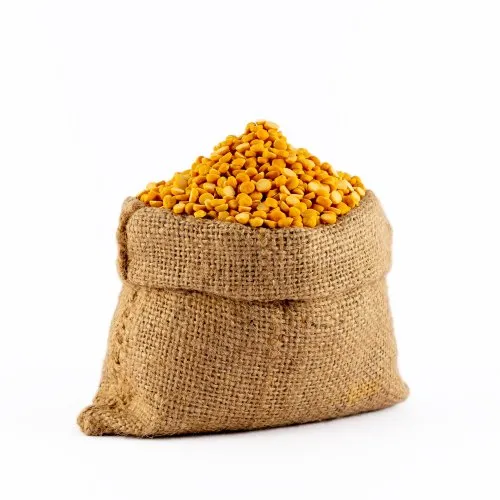Chana Dal Organic
₹110.0
| Brand | Terra Greens Organic |
| Speciality | Organic |
| Cuisine | Indian |
| Shelf Life | 1 year |
| Country of Origin | Made in India |
- Description
- Additional information
- Reviews (0)
- Q & A
- Sustainability Remark
- More Offers
- Store Policies
- Inquiries
Healthy and Organic cultivated Chana Dal. Easy to cook and good in taste.
| brands | Terra Green Organics |
|---|
You must be logged in to post a review.
Q & A
Organic dal, which refers to organically grown lentils or pulses, can be considered a sustainable food choice for several reasons. Here are some key points regarding the sustainability of organic dal:
Environmental Benefits: Organic farming practices promote biodiversity, conserve natural resources, and minimize environmental harm. Organic dal is cultivated without the use of synthetic pesticides, herbicides, or genetically modified organisms (GMOs), which reduces chemical pollution and soil degradation. Organic farmers also focus on soil health, crop rotation, and natural pest control methods, contributing to long-term sustainability.
Reduced Chemical Exposure: By choosing organic dal, you can minimize your exposure to synthetic chemicals commonly used in conventional agriculture. Synthetic pesticides and fertilizers can have adverse effects on human health and the environment. Opting for organic dal ensures that you are consuming a product grown without such chemicals.
Support for Small-scale Farmers: Organic farming often benefits small-scale farmers by providing them with sustainable livelihoods. Organic certification can open up niche markets and offer better prices for their produce, enabling them to compete with larger industrialized farming operations. Supporting small-scale organic farmers contributes to local economies and helps preserve traditional farming practices.
Soil Health and Carbon Sequestration: Organic farming methods prioritize soil health through practices such as crop rotation, composting, and the use of organic fertilizers. Healthy soils store more carbon and promote better water retention, reducing the risk of erosion and improving overall land productivity. Organic dal production can contribute to carbon sequestration and mitigate climate change.
Consumer Health Considerations: Organic dal is typically free from genetically modified ingredients, synthetic hormones, and antibiotics. It may contain higher levels of certain nutrients and antioxidants compared to conventionally grown counterparts. Choosing organic dal can align with a health-conscious lifestyle and support overall well-being.
While organic dal offers various sustainability advantages, it is important to note that sustainability is a complex and multifaceted concept. Other factors, such as transportation methods, packaging materials, and the overall supply chain, can also influence the sustainability of the product. Therefore, considering the entire lifecycle and assessing the broader sustainability practices of the producer or brand is essential when evaluating the sustainability of any food product.
General Inquiries
There are no inquiries yet.

















Reviews
There are no reviews yet.